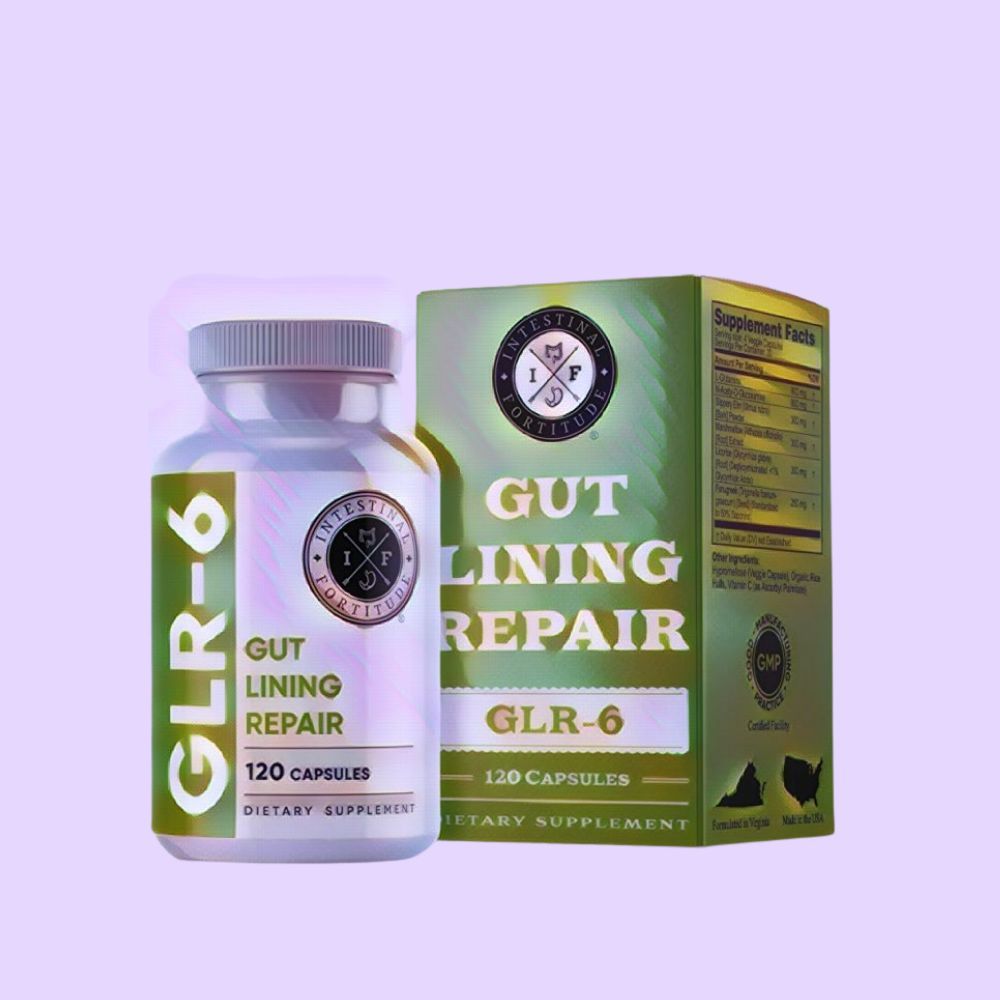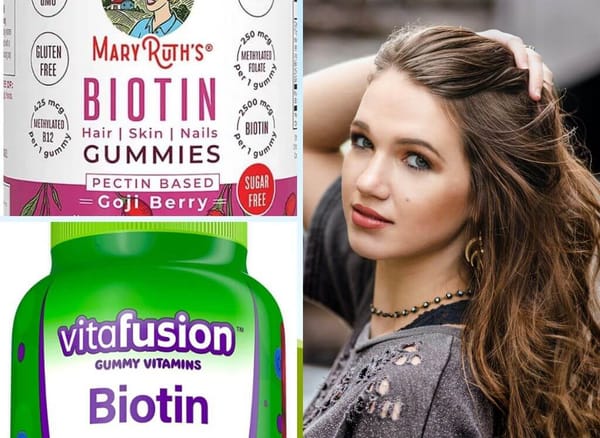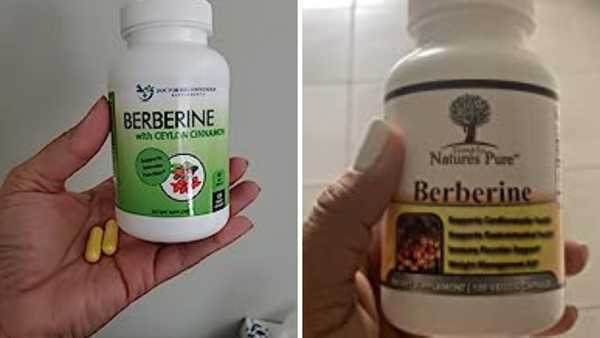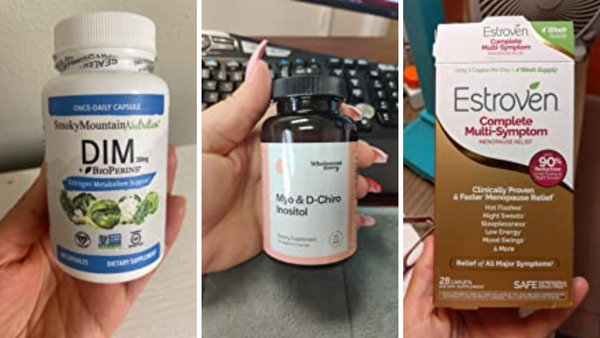Looking for a probiotic to help with your diverticulitis? Look no further!
Probiotics are amazing little creatures that can do wonders for your gut health. In fact, they're so good for you that we've dedicated an entire article to helping you find the best one for your needs.
We want to help you get rid of your diverticulitis once and for all, and probiotics are a big part of that equation. So read on and find the perfect product for you!
Read on to learn more about the best probiotics for diverticulitis!
We hope you find your next favorite thing from the list below! Each product was independently selected by our editors. Some may have been sent as samples for us to fiddle with, but all opinions in this article are our own. Oh, and FYI — LucksList may collect a share of sales or other compensation from the links on this page if you decide to buy something (that's how we stay in business). Reviews have been edited for length and clarity. Enjoy finding your next favorite thing!
How We Choose The Best For You
It's hard to know which probiotic is best for you. With so many on the market, how can you be sure that you're picking the right one?
You could try reading all of the reviews on Amazon to figure out which probiotic is best for you, but that would take forever. And even then, there's no guarantee that you'll pick the right one.
Let us help! We've read through thousands of reviews to find the best probiotics for every need. Whether you're looking for a probiotic to improve your digestion or one to boost your immune system, we have a solution for you.
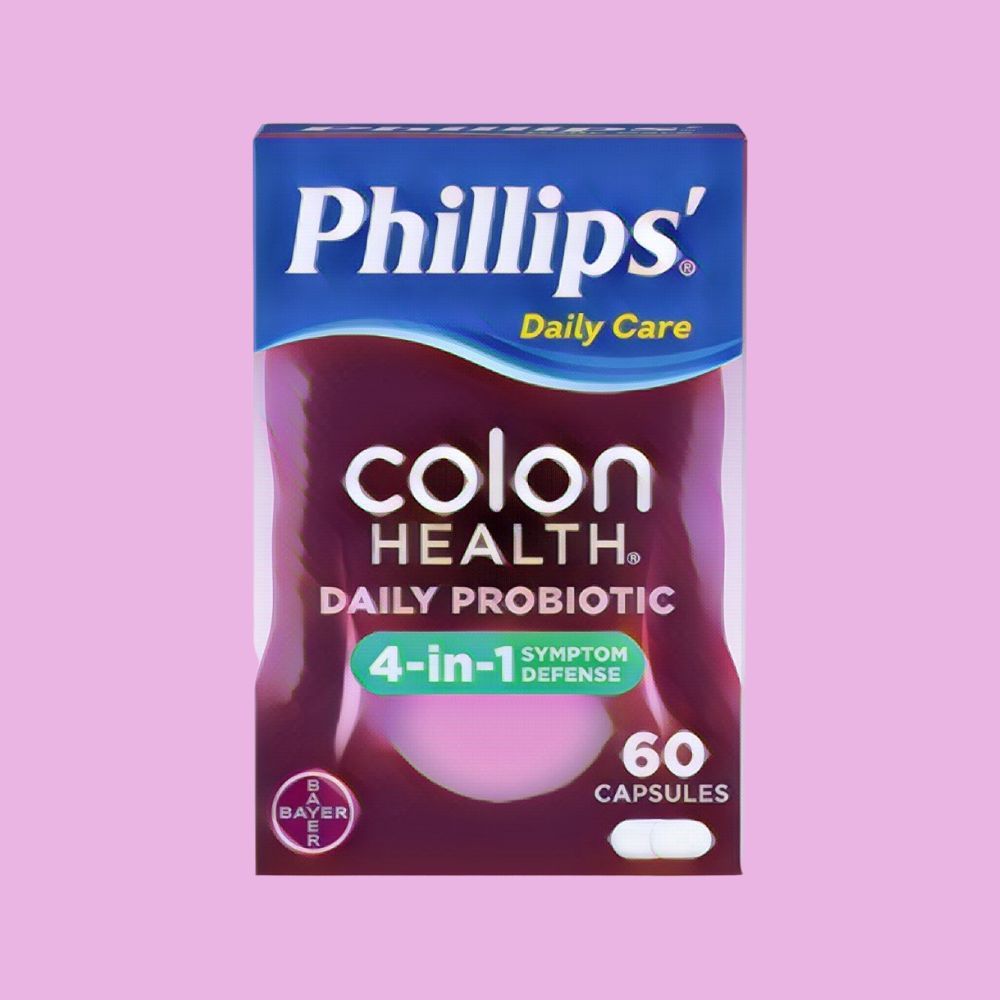
Best for Occasional Gas, Bloating, Constipation, & Diarrhea
Phillips Colon Health
Why We Love It
Phillips’ Colon Health Probiotic Capsules are a 4-in-1 symptom defense against four occasional digestive issues: gas, bloating, constipation, and diarrhea.
Diet, stress and travel can upset your usual digestive balance. Phillips’ probiotic capsules help replenish the balance of good bacteria in the colon.
These probiotic capsules contain 3 types of specially selected probiotics: Lactobacillus Gasseri KS 13, Bifidobacterium Bifidum G9 1, and Bifidobacterium longum MM 2.
These powerful probiotics work together to provide optimal digestive health. So whether you’re dealing with a little stomach discomfort or you’re looking for long-term digestive support, Phillips’ Colon Health Probiotic Capsules can help.
What You Should Know
Phillips’ Colon Health Probiotic Capsules promises 1.5 Billion CFU's of live and active cultures at time of expiry, which is something that other brands don't always guarantee.
Phillips' has over 140 years of trusted digestive health expertise and this product ships as one 60 count box. The capsules are free of GMOs, gluten, dairy, and soy and can be taken at the same time as laxative products.
This product may help to relieve occasional constipation, diarrhea, bloating, and gas. It can also help to promote a healthy immune system.
So, if you're looking for a probiotic that delivers on its promises, then Phillips' Colon Health is worth considering.
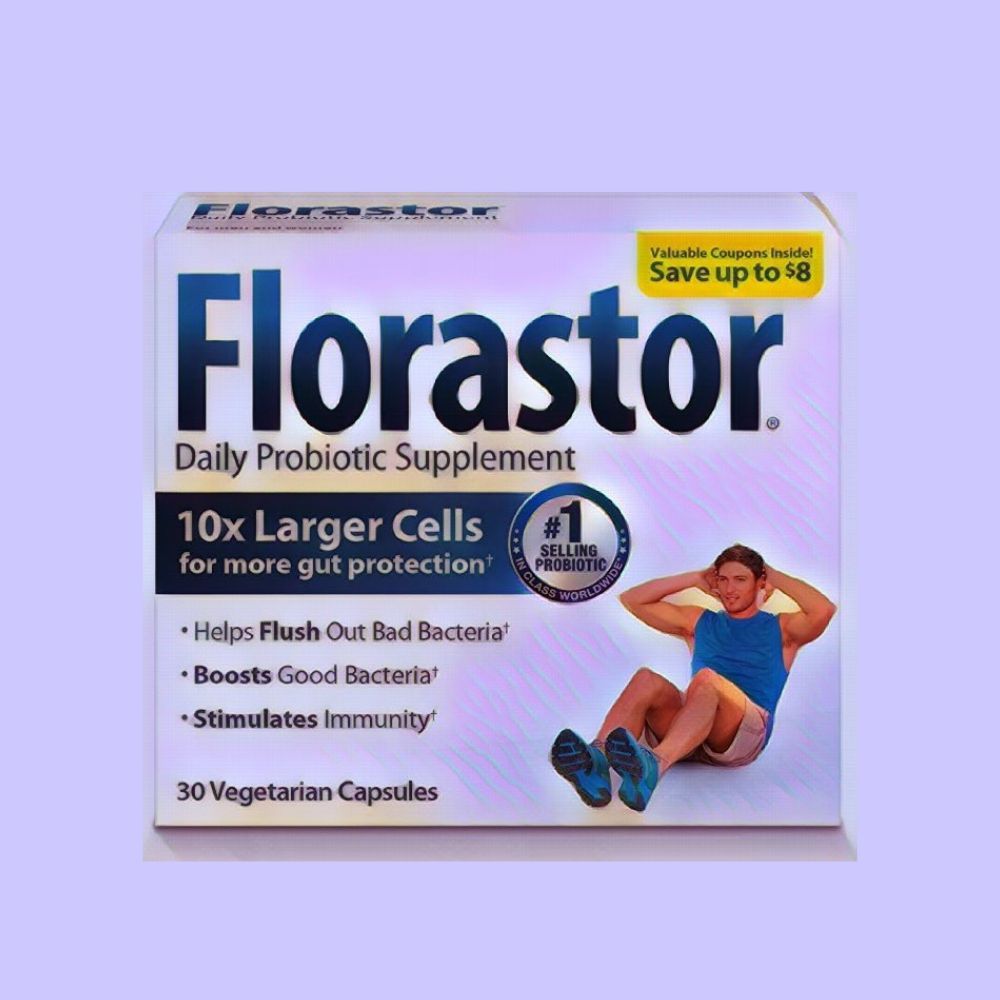
Best for Digestive Health, Saccharomyces Boulardii
Florastor Daily Probiotic Supplement
Why We Love It
Looking for a natural way to improve your digestive and immune health? Look no further than Phillips Colon Health!
Their unique probiotic strain helps increase the natural flora in your digestive tract, providing overall health benefits by strengthening your digestive balance and supporting a healthy immune system.
Plus, their probiotic formula is antibiotic resistant, so it thrives even during antibiotic use. And best of all, no refrigeration is required! So why wait? Try Phillips Colon Health today and start feeling your best!
What You Should Know
Florastor is the probiotic of choice for people who want to live a healthy lifestyle. Florastor helps you absorb water and nutrients so you stay hydrated and energized.
Florastor is made with ingredients that are vegetarian, gluten-free, titanium dioxide free and appropriate for lactose intolerance.
Florastor is the number 1 probiotic in its class around the world; We use a unique and effective probiotic strain with over 65 years of use and research.
Why We Love It
If you're looking for a natural way to soothe the irritation and ulceration of your gastrointestinal tract, look no further than Intestinal Fortitude GLR-6.
This maximum strength formula includes 2-6X more of the active ingredients that are scientifically proven to help you feel better, making it the best gut lining repair supplement on the market.
Users report experiencing less upset stomachs, less frequent trips to the restroom, less fear of eating food, less acid reflux, decreased diarrhea, and firmer stool.
So if you're looking for a product that will help you feel better fast, look no further than Intestinal Fortitude GLR-6 - the best gut lining repair supplement on the market!
What You Should Know
Looking for a little extra intestinal fortitude? You've come to the right place! Their GLR-6 supplement is packed with nature's most protective compounds, working together to repair your mucosal lining and give your body the building blocks it needs to tighten the gastrointestinal junctions.
Plus, it's safe, natural, and effective - processed in a GMP compliant facility in the USA, free from gluten, dairy, soy, wheat, GMO, nuts, eggs, fish, colorings, preservatives, and animal derivatives.
So why wait? Give your gut the nourishment it deserves - order their GLR-6 supplement today!
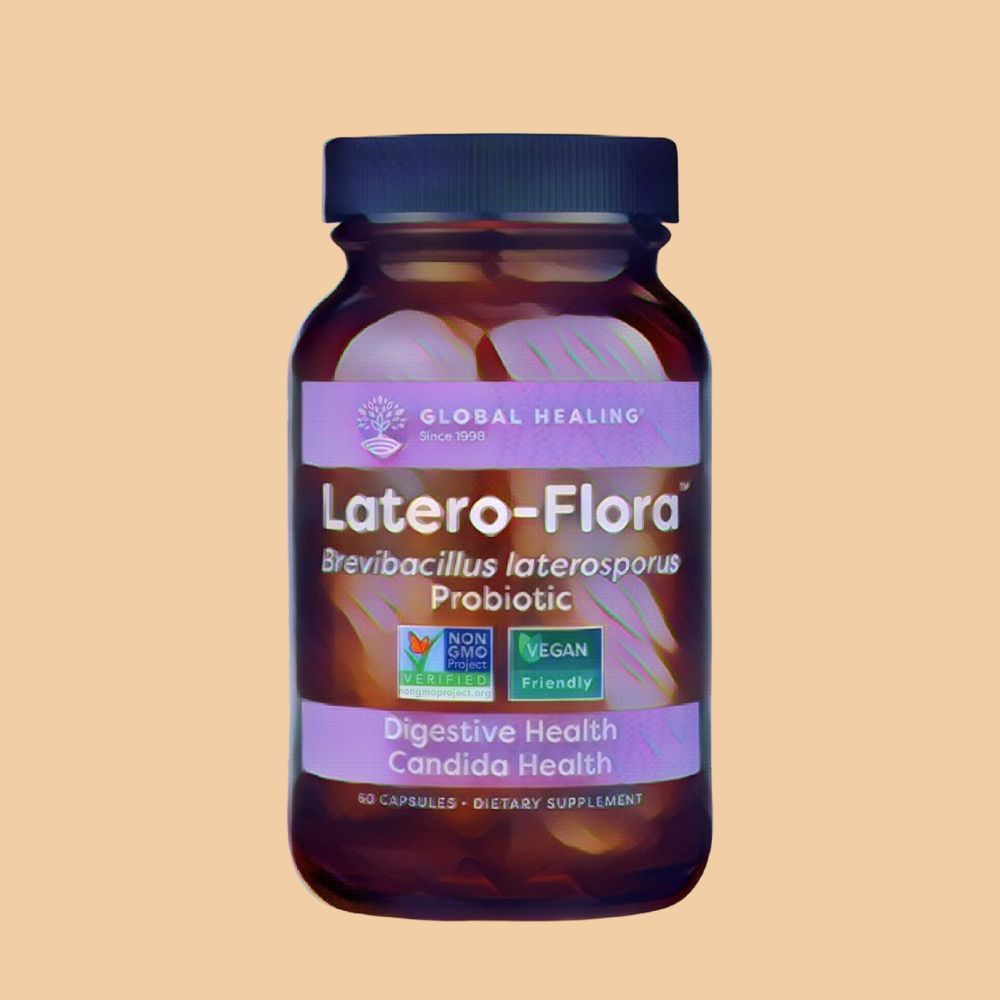
Best for Gut Health, Digestion and Candida Cleanse Support
Global Healing Latero-Flora, Probiotic Supplement
Why We Love It
Looking for a natural way to promote gut health and relieve occasional digestive discomfort? Global Healing's Intestinal Balance supplement is here to help!
Made with Brevibacillus laterosporus, a friendly bacteria that helps encourage a normal balance of colonies in the gut, this supplement is perfect for those looking to improve their overall wellness.
In addition to promoting intestinal balance, this powerful probiotic also supports proper digestion and a healthy immune system.
So if you're looking for a little help in the digestive department, give Intestinal Balance a try - your gut will thank you!
What You Should Know
If you're looking for a probiotic that can actually make a difference, look no further than Global Healing's Brevibacillus Laterosporus.
This naturally occurring, spore forming organism is able to survive in stomach acid and colonize the intestinal tract.
It's also free of gluten, soy, dairy, GMOs, nuts, sugar, artificial flavors, synthetic dyes, and toxic fillers. And unlike most probiotics, Latero-Flora is shelf stable due to the unique strain. So there's no need to refrigerate it.
Other probiotics lack potency and don't have the required servings to truly make a difference.
But with Global Healing's Brevibacillus Laterosporus, you can be confident you're getting a high quality probiotic that can actually make a difference in your gut health.
Plus, it's manufactured in the USA. So you can be confident you're getting a product that meets strict safety and quality standards.
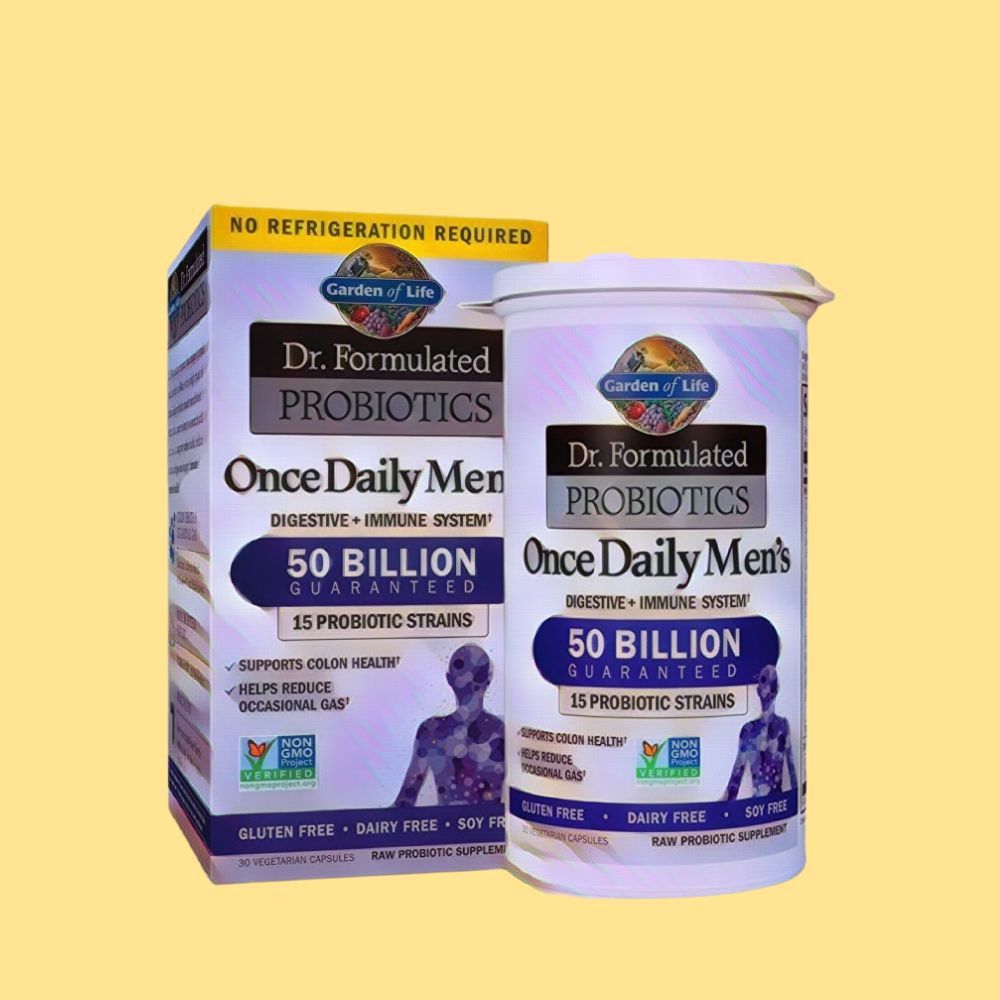
Best for Digestive Health Daily Probiotic for Constipation Relief
Garden of Life Dr. Formulated
Why We Love It
Looking for a probiotic that can help with digestive and immune health? Look no further than Garden of Life Dr. Formulated!
This once daily supplement contains Lactobacillus acidophilus and Bifidobacteria to help with digestive health and constipation relief, as well as 50 billion CFU and 15 probiotic strains for immune system support.
Plus, it's specially formulated for men's specific health needs and colon support. So why wait? Get started on your path to better health today with Garden of Life Dr. Formulated!
What You Should Know
Garden of Life Dr. Formulated shelf stable probiotics and Garden of Life Dr. Formulated hypoallergenic probiotic are two probiotic supplements that offer different benefits.
The shelf stable probiotics comes in 30 one daily capsules and does not require refrigeration, while the hypoallergenic probiotic is dairy free, gluten free, soy free, and vegetarian.
Both supplements are designed to support a healthy digestive system, but the shelf stable probiotics may be more ideal for those who have trouble digesting dairy or are lactose intolerant.
The hypoallergenic probiotic may be more suitable for those with sensitive stomachs or who have allergies to dairy, gluten, or soy.
Best Probiotic for Diverticulitis FAQs
Diverticulitis is a painful and often embarrassing digestive disease that can strike at any time.
If you're one of the millions of Americans who suffer from diverticulitis, you know how painful and frustrating this condition can be. You probably have a lot of questions about what causes it, how to treat it, and whether or not probiotics can help.
We've got the answers for you. Our expert research has uncovered the most frequently asked questions about diverticulitis and probiotics, and we've found the best answers for each one.
Can You Take Probiotics When You Have Diverticulitis?
In general, it's thought that taking probiotics may help to prevent or treat this condition. Some research suggests that probiotics can help reduce inflammation in the gut and improve digestive symptoms, both of which are often associated with diverticulitis.
Probiotics may also help to prevent Diverticulitis flares by keeping the gut microbiota healthy. Additionally, some studies have shown that certain probiotic strains can help fight the H. pylori bacteria, which is thought to play a role in the development of Diverticulitis.
Irritable bowel syndrome (IBS) is a common condition that affects the digestive system.
While there is no cure for IBS, many people find that probiotics can help to relieve some of their symptoms. Probiotics may help to reduce inflammation in the gut, improve digestive function, and balance the microbiota.
Do Probiotics Help Diverticulitis Flare Ups?
There are many different ways to treat diverticulitis, and probiotics may be one option that you want to consider. Probiotics are live microorganisms (usually bacteria) that are similar to the beneficial microorganisms that naturally live in your gut. They can help to restore the balance of good and bad bacteria in your gut, which may help to reduce or prevent flare-ups of diverticulitis.
Probiotics are available in supplement form or in some fermented foods like yogurt, sauerkraut, kimchi, and tempeh. If you're considering taking a probiotic supplement, it's important to choose one that is high quality and enteric-coated. This type of coating helps to ensure that the probiotic actually reaches your gut, where it can be most effective.
Acute diverticulitis is a sudden, severe inflammation of the diverticula.
Acute diverticulitis can be very painful and may even require hospitalization. Probiotics may help to reduce the severity of symptoms and shorten the duration of acute diverticulitis.
What Is the Best Medicine for Diverticulitis?
The best medicine for diverticulitis is antibiotics if the inflammation is bacterial, and pain relief and rest if it is non-bacterial.
Diverticulitis occurs when small pouches, or sacs, form in the lining of the large intestine. These sacs can become inflamed or infected. The most common symptoms of diverticulitis are abdominal pain and bloating, which may be accompanied by nausea, vomiting, diarrhea, constipation, or a change in bowel habits.
Symptomatic uncomplicated diverticular disease can be treated with fiber, stool softeners, and/or antispasmodics. If these treatments are unsuccessful or the person has complicating factors such as severe pain, bleeding, fever, or weight loss, then medical therapy is warranted.
How Can I Heal My Diverticulitis Fast?
Probiotics can help speed the healing process of diverticulitis. The best probiotic strains for healing diverticulitis are Lactobacillus and Bifidobacterium. You can find probiotics in supplement form, or you can get them from certain foods, such as sauerkraut, yogurt, kefir, and kimchi.
Lactobacillus Casei is a probiotic strain that has been shown to be effective in the treatment of Diverticulitis. This particular strain has anti-inflammatory and immune-modulating effects, which can help to reduce the severity of symptoms and speed the healing process.
Lactobacillus plantarum is another probiotic strain that has been shown to be helpful in the treatment of Diverticulitis. This strain can help to reduce inflammation, improve gut motility, and promote healing of the intestinal lining.
What Triggers Diverticulitis Flare Ups?
There are a few different things that can trigger a diverticulitis flare up. One of the most common is eating certain foods that can irritate the lining of the intestinal tract. Some examples of these trigger foods include crunchy or hard to digest foods like popcorn, pretzels, chips, and nuts.
Other examples include spicy foods, high-fat foods, and acidic fruits like oranges and tomatoes.
In addition to dietary triggers, other things that can bring on a diverticulitis flare up include stress and insufficient fiber intake.
Both of these factors can contribute to constipation, which can in turn put pressure on the diverticular outpouchings and cause them to become inflamed or infected.
Why Do I Keep Getting Diverticulitis?
There are a few reasons why someone might keep getting diverticulitis. The first is that they may not be adopting the necessary dietary changes in order to prevent the formation of new diverticula.
Another possibility is that they are still experiencing occasional episodes of constipation, which can lead to the formation of new diverticula.
Finally, there is some evidence that suggests that people who have had multiple episodes of diverticulitis may be more likely to experience complications (such as abscesses or perforations) if they do get another attack.
What Is the Best Form of Probiotics?
The best form of probiotics is the one that is best suited to your individual needs, and it may vary from person to person.
Some people do well with dairy-based probiotics, others do not. Some people find that taking a probiotic supplement on an empty stomach helps them absorb the probiotics better, while others find that taking them with food works better for them.
Acute uncomplicated diverticulitis can be treated with antibiotics and a clear liquid diet. If you have severe pain, bleeding, or other complicating factors, you may need to be hospitalized.
Lactobacillus fermentum is a strain of probiotic that has been shown to be helpful in the treatment of acute uncomplicated diverticulitis. This particular strain can help to reduce inflammation, improve gut motility, and promote healing of the intestinal lining.
Is Probiotic Yogurt Good for Diverticulitis?
There is some anecdotal evidence that probiotic yogurt may be beneficial for people with diverticulitis, but there is no scientific evidence to support this claim.
Some studies have shown that probiotic yogurt may help improve gut health and overall digestion, which could theoretically lead to a reduction in symptoms of diverticulitis. However, more research is needed to confirm this link.
Gut bacteria play an important role in overall health, and probiotics are live microorganisms that can help to promote a healthy gut.
Lactobacillus strains are the most commonly used probiotics, and they can be found in yogurt, sauerkraut, kefir, kimchi, and other fermented foods.
Does Metamucil Help With Diverticulitis?
Yes, Metamucil can help with diverticulitis. It does this by increasing the amount of fiber in the diet, which helps to clean out the colon and reduce inflammation.
Diverticulitis is a condition in which small pouches (diverticula) form in the wall of the colon. These pouches can become inflamed or infected, causing pain, diarrhea, constipation, or even rectal bleeding. Increasing fiber intake is one of the best ways to prevent and manage diverticulitis. Metamucil is a source of fiber that can help to do just that.
What Can Be Mistaken for Diverticulitis?
There are a few things that can be mistaken for diverticulitis, including Crohn's disease, bowel obstruction, appendicitis, and gallbladder disease.
Crohn's disease is an inflammatory bowel disease that can cause inflammation and sores in the digestive tract. Bowel obstruction is a blockage of the digestive tract that can impede or stop the flow of food through the intestines. Appendicitis is an inflammation of the appendix, a small organ attached to the large intestine. Gallbladder disease is a condition that affects the gallbladder, a small organ located near the liver that helps to digest fat.
Probiotic Benefits
Probiotics are live microorganisms that are similar to the good bacteria that naturally live in your gut. They can offer a range of health benefits, including aiding digestion, boosting immunity, and reducing inflammation. Probiotics are especially beneficial for those with diverticular disease, a condition that affects the large intestine.
Diverticulitis is a form of diverticular disease that is characterized by inflammation and infection of the pouch-like sacs that line the intestine. Probiotics can help to reduce the symptoms of diverticulitis by reducing inflammation, fighting infection, and improving gut motility.
In addition, probiotics can also help to prevent recurrence of diverticulitis by restoring the balance of good bacteria in the gut. If you are looking for a natural way to treat your diverticular disease, consider adding probiotics to your diet.
Probiotic Dosage
The proper dosage of probiotics for diverticulitis is still being debated. Some researchers believe that a high dose is necessary to achieve relief, while others believe that a lower dose may be just as effective.
The type of probiotic also appears to be a factor, with some strains being more effective than others. As more research is conducted, the ideal dosage and type of probiotic for diverticulitis will likely become clearer.
In the meantime, it may be best to consult with a healthcare practitioner before starting any probiotic regimen.
Probiotic Side Effects
Probiotics are live microorganisms that can provide health benefits when consumed. They are often called "good" or "friendly" bacteria because they help to keep the gut microbiota in balance.
Diverticulitis is a condition that affects the digestive system, and probiotics have been shown to be effective in reducing the symptoms of diverticulitis. However, there are also some potential side effects of probiotics for diverticulitis.
These include bloating, gas, and diarrhea. If you experience any of these side effects, it is important to speak with your doctor. Probiotics are generally safe for most people, but they may not be suitable for everyone.
What’s The Best Probiotic Supplement For You?
So what are the best probiotics for diverticulitis? According to our findings, it looks like #3 and #5 are your best bets!
If you’re looking for a general digestive health supplement that can help with occasional gas, bloating, constipation, and diarrhea relief, then we recommend trying out one of those two options.
And if you’re in need of a good cleanse support supplement or constipation relief remedy, they might be just what you need.
Thanks for sticking with us through this long post – hopefully now you feel armed and ready to find the perfect probiotic supplement for your individual needs!
And if you need help picking the right product, here you go!
Best for Occasional Gas, Bloating, Constipation, & Diarrhea
Phillips Colon Health
Best for Digestive Health, Saccharomyces Boulardii
Florastor Daily Probiotic Supplement
Best for Leaky Gut Repair Supplement
Intestinal Fortitude GLR-6
Best for Gut Health, Digestion and Candida Cleanse Support
Global Healing Latero-Flora, Probiotic Supplement
Best for Digestive Health Daily Probiotic for Constipation Relief
Garden of Life Dr. Formulated
We hope this article has helped make your decision easier and that you enjoy your new probiotic supplement!


